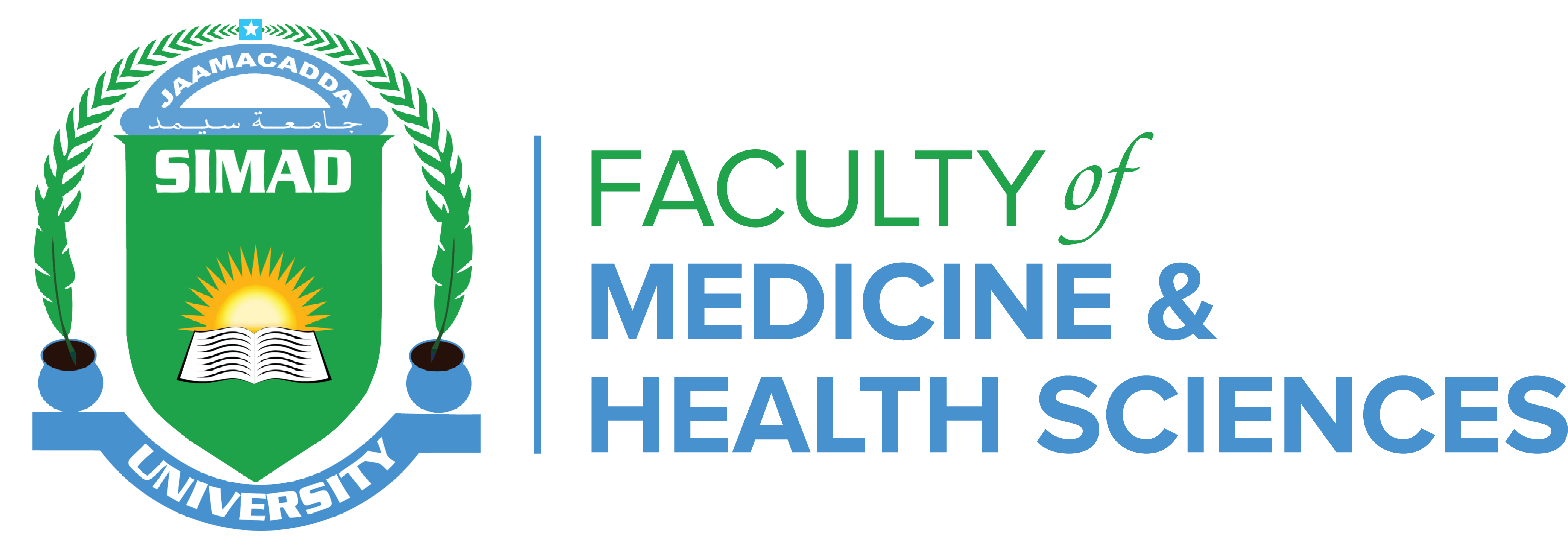Public Health
Designed to produce public health professionals who can tackle real-world health challenges,
this program emphasizes epidemiology, biostatistics, health promotion, and policy
development. Students are trained to assess community health needs and implement effective
interventions to improve population health outcomes.
- Completion of secondary school with a minimum overall average of 50%
- Should bring the original and a copy of secondary school certificate
- Should bring Six (6) passport size photos with white background
- Should bring the original copy of a letter of good conduct issued by your secondary school
- Should bring a sponsorship letter from your guardian
- Should successfully pass an admission interview and/or test
- Pay non-refundable Processing and ID card fees of USD $50 (bank draft)
Year 1
Semester 1: Introduction to Public Health, Cell Biology, General Chemistry, Arabic Language I, Fundamentals of Computers, Study Skills
Semester 2: Environmental Health and Hygiene, Physiology, Anatomy, Biochemistry, Descriptive Biostatistics, Islamic Studies I, Computer Application Technology (CAT)
Year 2
Semester 1: Microbiology I, Inferential Biostatistics, Basic Nutrition, Water Hygiene and Sanitation, Environmental Pollution and Control, Health Promotion and Education, Arabic Language II, Principles of Management
Semester 2: Field Training I, Food Hygiene and Safety I, School Health Promotion and Housing, Solid Waste Management, Principles of Epidemiology, Applied Nutrition, Microbiology II, Medical Parasitology
Year 3
Semester 1: Field Training II, Food Hygiene and Safety II, Medical Entomology and Vector Control, Epidemiological Studies, Principles of Pharmacology, Immunology, Endemic Diseases, Communication Skills
Semester 2: Field Training III, Health Research Methods, Health Psychology and Mental Health, Occupational and Industrial Health, Reproductive Health and Family Planning, Genetics, Health Management Systems
Year 4
Semester 1: Field Training IV, Public Health Law and Ethics, Public Health Economics, Health Management Information Systems, Health Disaster Management
Semester 2: Field Training V, Food Quality Control, International Health Regulations, Environmental Impact Assessment, Research Project
5 years
Fees($): $400.00
Charges($): $70.00
Total($): $470.00
STUDENTS FEES PAYMENT POLICY
This policy applies to all students, these include: part-time and full-time for both undergraduate and postgraduate and any other person enrolled as a student at the University:
- Option one: At the beginning of the semester, all semester fees can be paid in full.
- Option two: At the beginning of the semester, students should pay 30% of semester fees before he/she registers for the class. In the second installment, 40% of the semester fees should be paid before the midterm exam. The remaining 30% of the semester fees should be paid before the final exam.
- After payments of second and third installments, students are eligible to get their clearance cards for midterm and final exams.
- Fees Collector officer will be responsible to check fees default when he/she gets a report from the head of the cash unit.
- SU will not refund any fees paid unless the student has no remaining semester.
- Students and sponsors who unintentionally or intentionally deposit fees will not be refunded but will be forwarded to the next semesters.
- Upon graduation period, all extra fees balance should be refunded to the students.
- Any student who temporarily or permanently breaks his/her study can request an extra fee refund.
- Head of Cash Unit should check the activities of the sponsors.
Bank Accounts
Premier Bank: 20300001001
Dahabshiil: 1822
Salam Bank: 30027598
Idman Community Bank: 7401005
IBS Bank: 1820
The SU academic year consists of 42 weeks split into two semesters of 18 weeks each, the first beginning in August.
Public Health Officer: Implement health programs and respond to public
health challenges in ministries, NGOs, or UN agencies.
o Epidemiologist or Disease Surveillance Officer: Track and investigate
disease outbreaks, analyze trends, and implement control measures.
o Health Promotion Specialist: Design and conduct community-based health
education to influence healthy behaviors.
o Environmental Health Specialist: Monitor and improve sanitation, pollution
control, and occupational healthenvironments.
o Health Policy Analyst: Use data to advise and shape health policies and
improve service delivery at regional or national levels.
o Monitoring and Evaluation (M&E) Officer: Assess the impact and
effectiveness of health interventions and development programs.
o Community Health Project Manager: Lead and coordinate public health
projects and campaigns within local or international communities.
